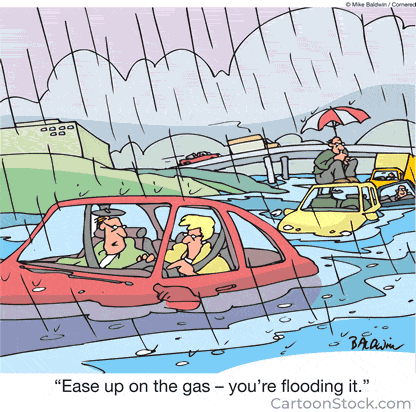
Vehicle Fires
If the fire is small, you can use an extinguisher to put it out. Whatever you do, don't spray or pour water on a gassolene, oil or electrical fire. With a large fire , don't attempt to try to put out the fire yourself. The fire may spread to the gas tank and create a large fire ball. Keep far away and call for help.
Car fires are caused by:
- Fuel Leaks
- Electrical Shorts
- Overheated Engines
- Oil Leaks
- Intentionally Set
Vehicle fires are a serious safety issue and can occur in any type of vehicle, including cars, trucks, buses, motorcycles, and other motorized vehicles. While the causes of vehicle fires vary, they are usually caused by some form of mechanical failure, electrical malfunction, or a fuel-related issue. Vehicle fires can be extremely dangerous and can cause serious injury or even death.
Mechanical failure is one of the most common causes of vehicle fires. Mechanical failure can be caused by a number of different things, such as a worn or defective part, a faulty installation, or a lack of regular maintenance. Any of these issues can cause friction, heat, and sparks, which can ignite fuel or flammable fluids and cause a fire.
Electrical malfunctions can also cause vehicle fires. Electrical shorts, faulty wiring, or defective components can cause sparks to ignite fuel and cause a fire. Loose or corroded wires are especially dangerous and can cause shorts, leading to an electrical fire.
Fuel-related issues are also a common cause of vehicle fires. Fuel can leak or spill, leading to a fire if a spark is present. The fuel lines in a vehicle also need to be checked regularly to make sure they are not damaged or leaking. If fuel is spilled in or around the engine, it can ignite if a spark is present.
In addition to mechanical failure, electrical malfunctions, and fuel-related issues, vehicle fires can also be caused by other things, such as human error, arson, or improper storage. Human error can include using the wrong type of fuel or oil, overloading the vehicle, or not properly maintaining the vehicle’s electrical system. Arson is a criminal act and can include intentionally setting a vehicle on fire. Improper storage can include leaving combustible materials, such as gasoline cans, near a vehicle, which can lead to a fire.
Vehicle fires can be extremely dangerous and cause serious injury or death. It is important to take the proper precautions to prevent vehicle fires, such as regularly maintaining and inspecting the vehicle, using the correct type of fuel and oil, and storing combustible materials away from the vehicle. If a vehicle fire does occur, it is important to get away from the vehicle as quickly as possible and call 911.
In all vehicle fire situations, think and act quickly. Personal and public safety are the most important considerations. A vehicle can be replaced, but you or someone nearby cannot.















